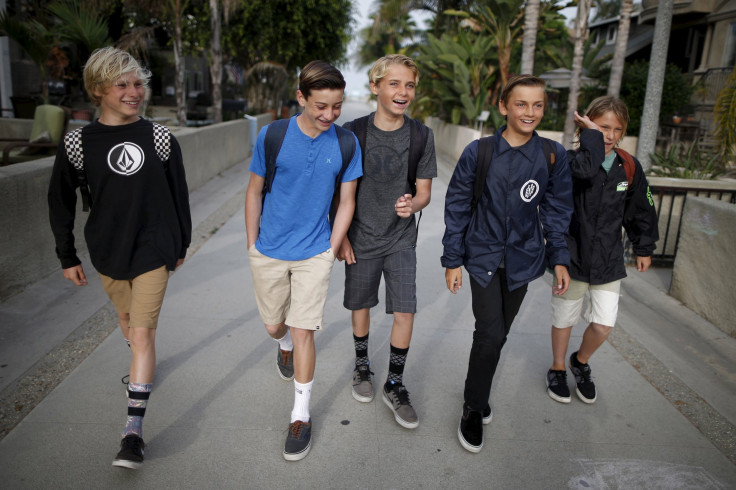Teens Pick Up Bad Mood From Their Friends But Likely Not Depression

Teenage years are frequently marked by a sulky mood and a lack of interest, but it may be less of a coincidence and more of a domino effect. A new study from the University of Warwick says the bad mood of a friend can cause an adolescent to exhibit bad mood behaviors as well, although it's likely not causing depression.
It’s estimated that more than 300 million people around the world suffer from depression, according to the World Health Organization, and suicide is the second leading cause of death for those between the ages of 15 and 29 years old. But while the illness is widespread, the population affected isn’t increasing due to exposure to others who are suffering, the study says.
To discover this, researchers analyzed data from the National Longitudinal Study of Adolescent Adult Health. This data has to do with the moods and networks of adolescents in schools in the United States. What they found was that while mood, and some symptoms of depression can rub off on participants in a friendship network, the mood was not strong enough to actually push friends into depression.
The study was published Wednesday in the Royal Society of Open Science. This information is important for researchers looking to better understand depression, especially as it presents in adolescents. The results that show that low mood, which was easily passed, and depression which was not passed via social groups, are inherently different. This indicates that there’s something more to depression than simply a low mood.
The data the researchers used was collected from in-home interview surveys that were performed six to 12 months apart. Those surveys included information about the friends the adolescents interviewed had and those social connections. The specific depressive symptoms the researchers examined were poor appetite, poor concentration, sadness, helplessness, tiredness and others. What they found was that teens with more friends with worse moods, were more likely to also have those worse moods. With the same thing holding true for teens with friends with better mood scores. Just as those with friends who exhibited bad moods also ended up in a bad mood, those students who had friends who exhibited good moods frequently ended up sharing in those good moods as well.
“Understanding that these components of mood can spread socially suggests that while the primary target of social interventions should be to increase friendships because of its benefits in reducing of the risk of depression, a secondary aim could be to reduce spreading of negative mood,” co-author on the study, Frances Griffiths, said, according to a press release.
The study has its limitations though. It relied on data collected for another purpose and did not examine full friendship networks, two areas for improvement in further research.
© Copyright IBTimes 2024. All rights reserved.



















